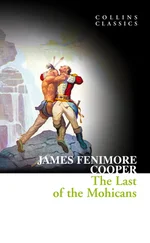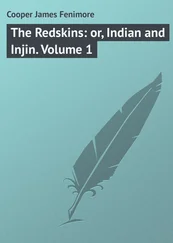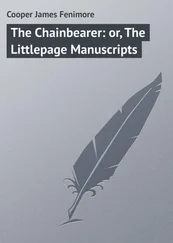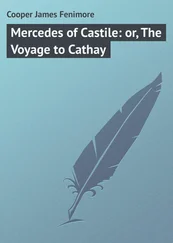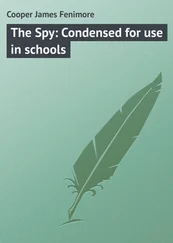James Cooper - The Last of the Mohicans - A Narrative of 1757
Здесь есть возможность читать онлайн «James Cooper - The Last of the Mohicans - A Narrative of 1757» — ознакомительный отрывок электронной книги совершенно бесплатно, а после прочтения отрывка купить полную версию. В некоторых случаях можно слушать аудио, скачать через торрент в формате fb2 и присутствует краткое содержание. Жанр: foreign_prose, на английском языке. Описание произведения, (предисловие) а так же отзывы посетителей доступны на портале библиотеки ЛибКат.
- Название:The Last of the Mohicans: A Narrative of 1757
- Автор:
- Жанр:
- Год:неизвестен
- ISBN:нет данных
- Рейтинг книги:3 / 5. Голосов: 1
-
Избранное:Добавить в избранное
- Отзывы:
-
Ваша оценка:
- 60
- 1
- 2
- 3
- 4
- 5
The Last of the Mohicans: A Narrative of 1757: краткое содержание, описание и аннотация
Предлагаем к чтению аннотацию, описание, краткое содержание или предисловие (зависит от того, что написал сам автор книги «The Last of the Mohicans: A Narrative of 1757»). Если вы не нашли необходимую информацию о книге — напишите в комментариях, мы постараемся отыскать её.
The Last of the Mohicans: A Narrative of 1757 — читать онлайн ознакомительный отрывок
Ниже представлен текст книги, разбитый по страницам. Система сохранения места последней прочитанной страницы, позволяет с удобством читать онлайн бесплатно книгу «The Last of the Mohicans: A Narrative of 1757», без необходимости каждый раз заново искать на чём Вы остановились. Поставьте закладку, и сможете в любой момент перейти на страницу, на которой закончили чтение.
Интервал:
Закладка:
Cooper James Fenimore
The Last of the Mohicans
CHAPTER I
"Mine ear is open, and my heart prepared:
The worst is worldly loss thou canst unfold:
Say, is my kingdom lost?"
It was a feature peculiar to the colonial wars of North America, that the toils and dangers of the wilderness were to be encountered before the adverse hosts could meet. A wide and apparently an impervious boundary of forests severed the possessions of the hostile provinces of France and England. The hardy colonist, and the trained European who fought at his side, frequently expended months in struggling against the rapids of the streams, or in effecting the rugged passes of the mountains, in quest of an opportunity to exhibit their courage in a more martial conflict. But, emulating the patience and self-denial of the practised native warriors, they learned to overcome every difficulty; and it would seem that, in time, there was no recess of the woods so dark, nor any secret place so lovely, that it might claim exemption from the inroads of those who had pledged their blood to satiate their vengeance, or to uphold the cold and selfish policy of the distant monarchs of Europe.
Perhaps no district throughout the wide extent of the intermediate frontiers can furnish a livelier picture of the cruelty and fierceness of the savage warfare of those periods than the country which lies between the head waters of the Hudson and the adjacent lakes.
The facilities which nature had there offered to the march of the combatants were too obvious to be neglected. The lengthened sheet of the Champlain stretched from the frontiers of Canada, deep within the borders of the neighboring province of New York, forming a natural passage across half the distance that the French were compelled to master in order to strike their enemies. Near its southern termination, it received the contributions of another lake, whose waters were so limpid as to have been exclusively selected by the Jesuit missionaries to perform the typical purification of baptism, and to obtain for it the title of lake "du Saint Sacrement." The less zealous English thought they conferred a sufficient honor on its unsullied fountains, when they bestowed the name of their reigning prince, the second of the house of Hanover. The two united to rob the untutored possessors of its wooded scenery of their native right to perpetuate its original appellation of "Horican." 1 1 As each nation of the Indians had either its language or its dialect, they usually gave different names to the same places, though nearly all of their appellations were descriptive of the object. Thus, a literal translation of the name of this beautiful sheet of water, used by the tribe that dwelt on its banks would be "The Tail of the Lake." Lake George, as it is vulgarly, and now indeed legally called, forms a sort of tail to Lake Champlain, when viewed on the map. Hence the name.
Winding its way among countless islands, and imbedded in mountains, the "holy lake" extended a dozen leagues still farther to the south. With the high plain that there interposed itself to the further passage of the water, commenced a portage of as many miles, which conducted the adventurer to the banks of the Hudson, at a point where, with the usual obstructions of the rapids, or rifts, as they were then termed in the language of the country, the river became navigable to the tide.
While, in the pursuit of their daring plans of annoyance, the restless enterprise of the French even attempted the distant and difficult gorges of the Alleghany, it may easily be imagined that their proverbial acuteness would not overlook the natural advantages of the district we have just described. It became, emphatically, the bloody arena, in which most of the battles for the mastery of the colonies were contested. Forts were erected at the different points that commanded the facilities of the route, and were taken and retaken, razed and rebuilt, as victory alighted on the hostile banners. While the husbandman shrank back from the dangerous passes, within the safer boundaries of the more ancient settlements, armies larger than those that had often disposed of the sceptres of the mother countries, were seen to bury themselves in these forests, whence they rarely returned but in skeleton bands, that were haggard with care, or dejected by defeat. Though the arts of peace were unknown to this fatal region, its forests were alive with men; its shades and glens rang with the sounds of martial music, and the echoes of its mountains threw back the laugh, or repeated the wanton cry, of many a gallant and reckless youth, as he hurried by them, in the noontide of his spirits, to slumber in a long night of forgetfulness.
It was in this scene of strife and bloodshed that the incidents we shall attempt to relate occurred, during the third year of the war which England and France last waged for the possession of a country that neither was destined to retain.
The imbecility of her military leaders abroad, and the fatal want of energy in her councils at home, had lowered the character of Great Britain from the proud elevation on which it had been placed, by the talents and enterprise of her former warriors and statesmen. No longer dreaded by her enemies, her servants were fast losing the confidence of self-respect. In this mortifying abasement, the colonists, though innocent of her imbecility, and too humble to be the agents of her blunders, were but the natural participators.
They had recently seen a chosen army from that country, which, reverencing as a mother, they had blindly believed invincible – an army led by a chief who had been selected from a crowd of trained warriors, for his rare military endowments, disgracefully routed by a handful of French and Indians, and only saved from annihilation by the coolness and spirit of a Virginian boy, whose riper fame has since diffused itself, with the steady influence of moral truth, to the uttermost confines of Christendom. 2 2 Washington: who, after uselessly admonishing the European general of the danger into which he was heedlessly running, saved the remnants of the British army, on this occasion, by his decision and courage. The reputation earned by Washington in this battle was the principal cause of his being selected to command the American armies at a later day. It is a circumstance worthy of observation, that, while all America rang with his well-merited reputation, his name does not occur in any European account of the battle; at least, the author has searched for it without success. In this manner does the mother country absorb even the fame, under that system of rule.
A wide frontier had been laid naked by this unexpected disaster, and more substantial evils were preceded by a thousand fanciful and imaginary dangers. The alarmed colonists believed that the yells of the savages mingled with every fitful gust of wind that issued from the interminable forests of the west. The terrific character of their merciless enemies increased immeasurably the natural horrors of warfare. Numberless recent massacres were still vivid in their recollections; nor was there any ear in the provinces so deaf as not to have drunk in with avidity the narrative of some fearful tale of midnight murder, in which the natives of the forests were the principal and barbarous actors. As the credulous and excited traveller related the hazardous chances of the wilderness, the blood of the timid curdled with terror, and mothers cast anxious glances even at those children which slumbered within the security of the largest towns. In short, the magnifying influence of fear began to set at naught the calculations of reason, and to render those who should have remembered their manhood, the slaves of the basest of passions. Even the most confident and the stoutest hearts began to think the issue of the contest was becoming doubtful; and that abject class was hourly increasing in numbers, who thought they foresaw all the possessions of the English crown in America subdued by their Christian foes, or laid waste by the inroads of their relentless allies.
Интервал:
Закладка:
Похожие книги на «The Last of the Mohicans: A Narrative of 1757»
Представляем Вашему вниманию похожие книги на «The Last of the Mohicans: A Narrative of 1757» списком для выбора. Мы отобрали схожую по названию и смыслу литературу в надежде предоставить читателям больше вариантов отыскать новые, интересные, ещё непрочитанные произведения.
Обсуждение, отзывы о книге «The Last of the Mohicans: A Narrative of 1757» и просто собственные мнения читателей. Оставьте ваши комментарии, напишите, что Вы думаете о произведении, его смысле или главных героях. Укажите что конкретно понравилось, а что нет, и почему Вы так считаете.
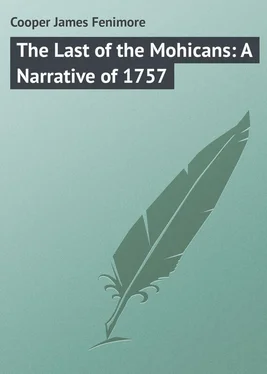


![Джеймс Купер - Последний из могикан, или Повествование о 1757 годе [The Last Of The Mohicans]](/books/397341/dzhejms-kuper-poslednij-iz-mogikan-ili-povestvovan-thumb.webp)


